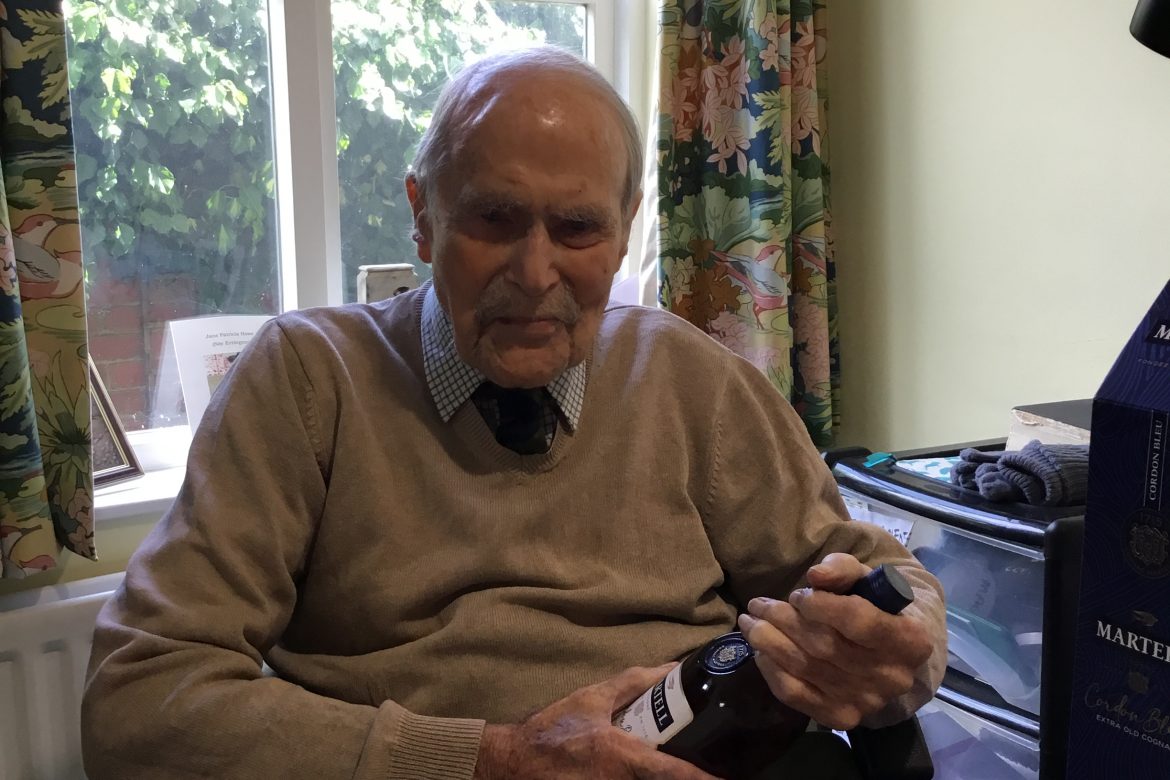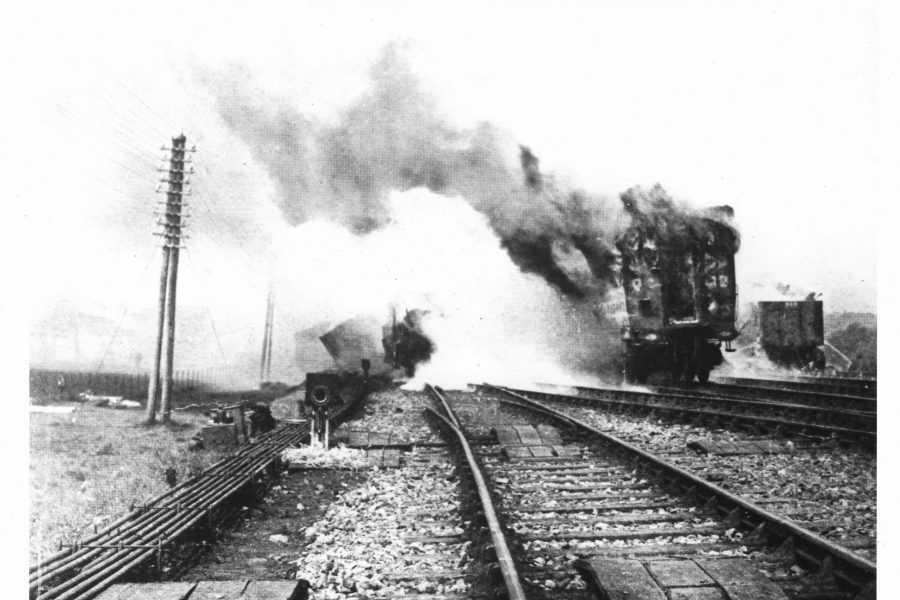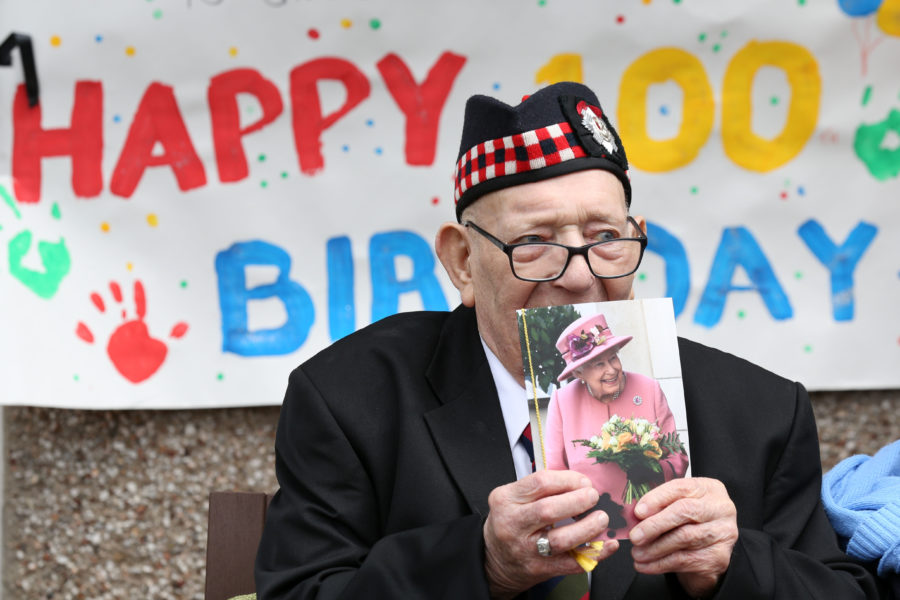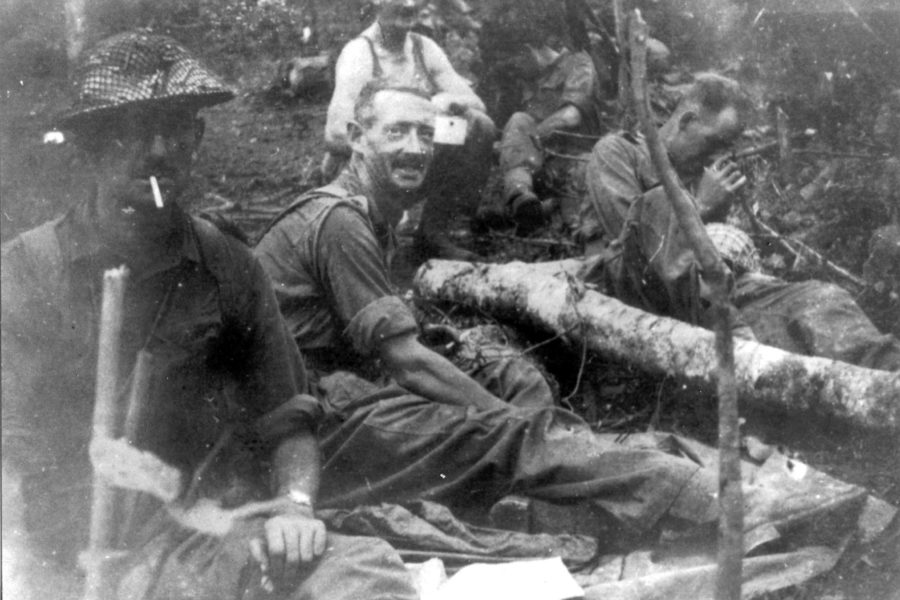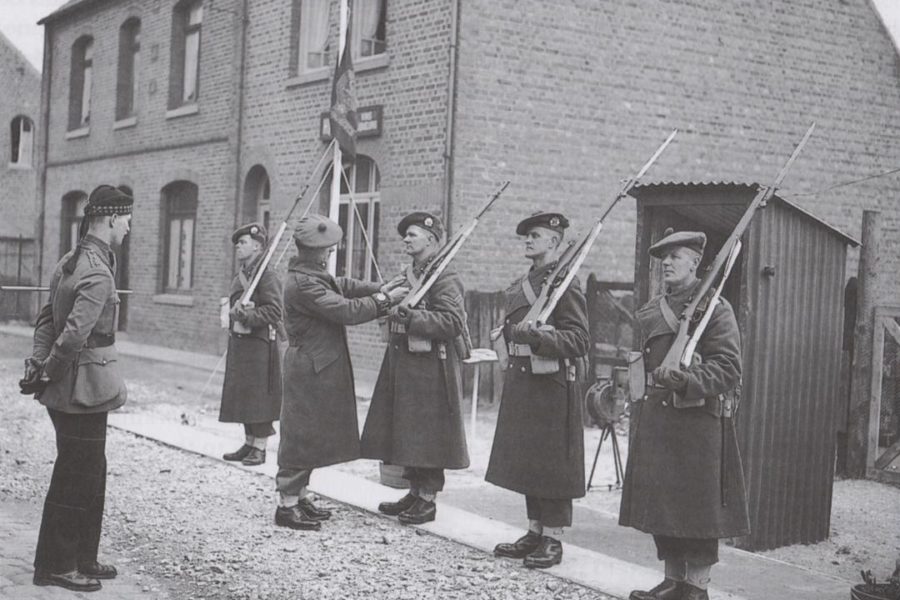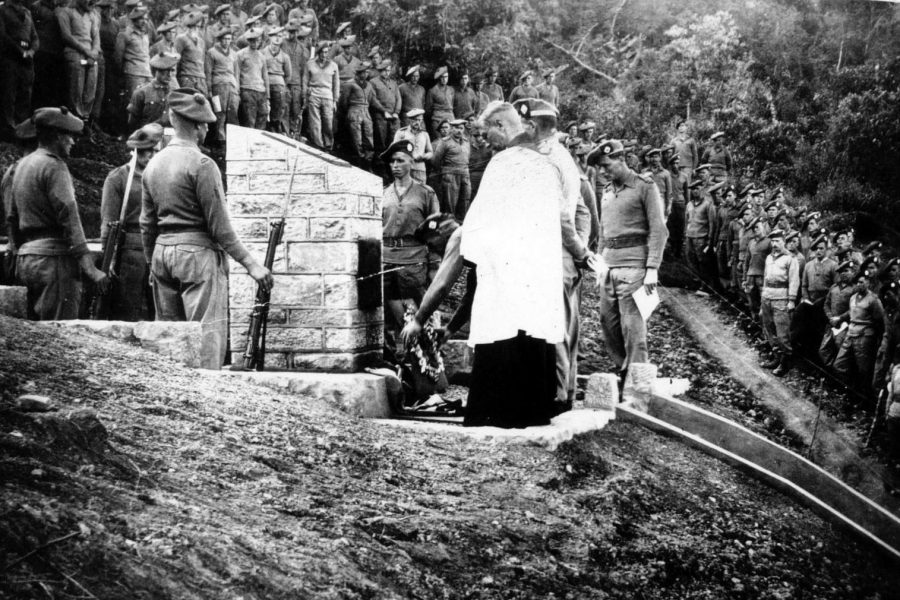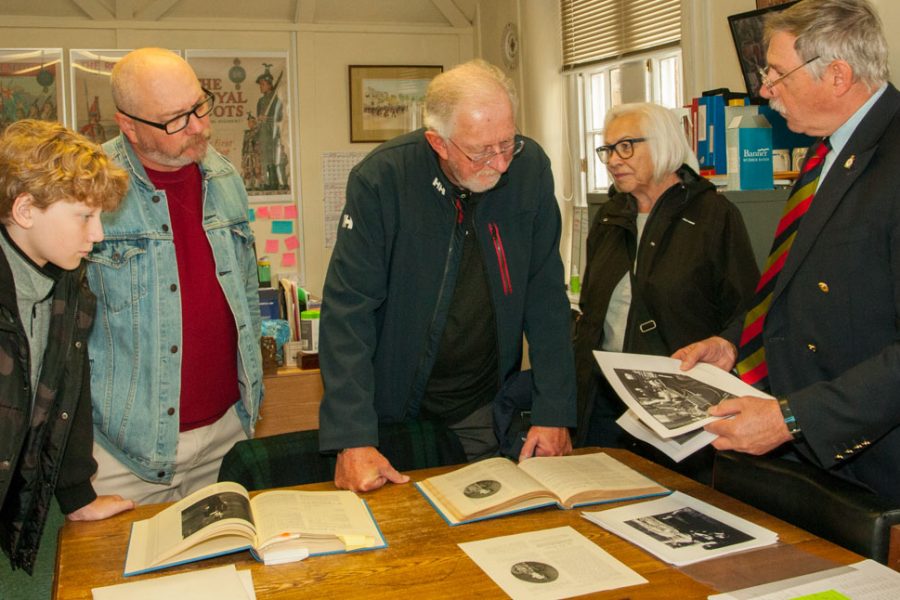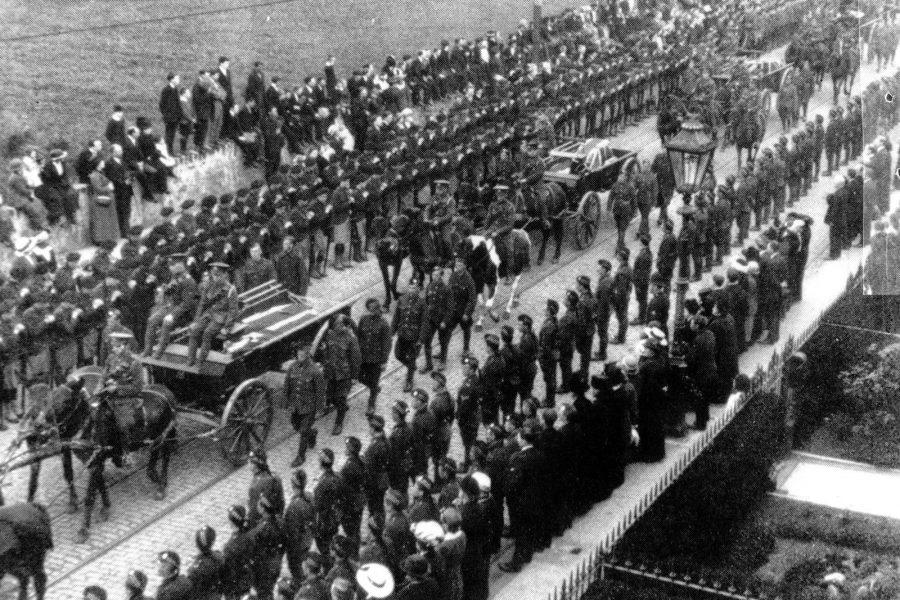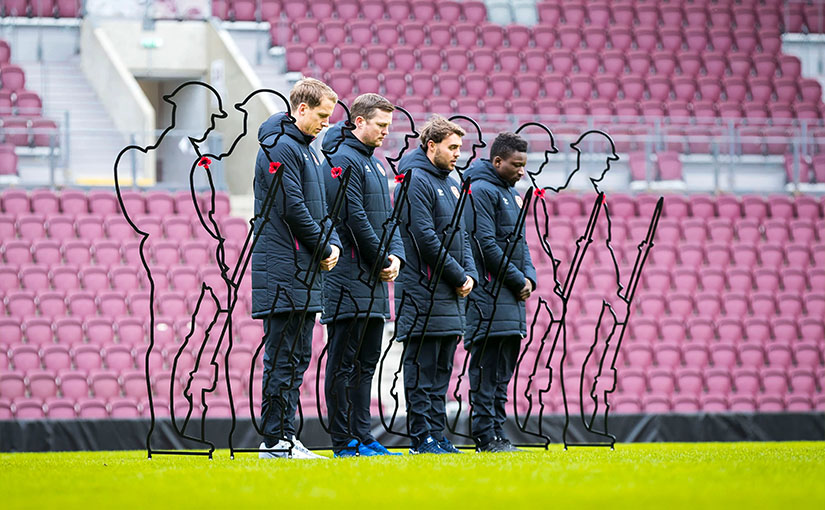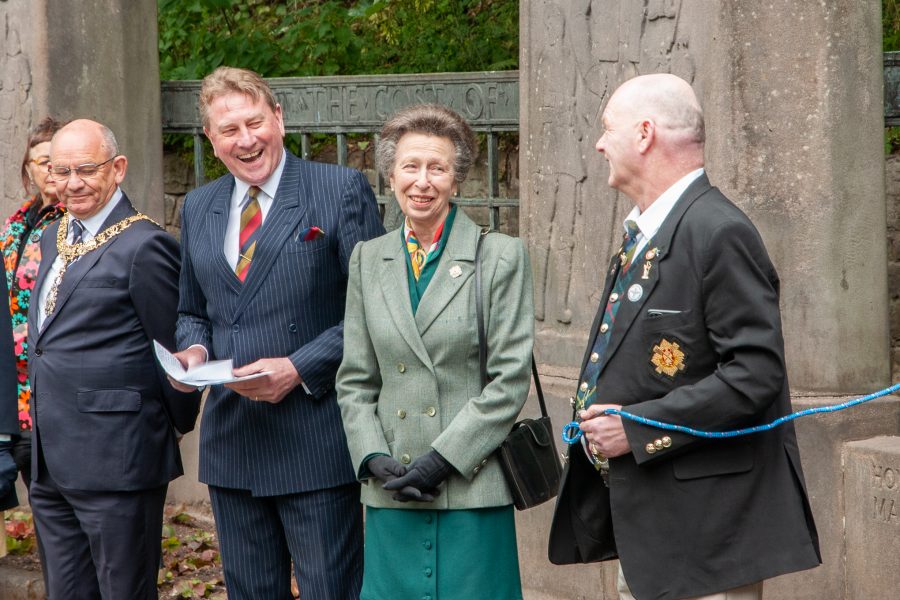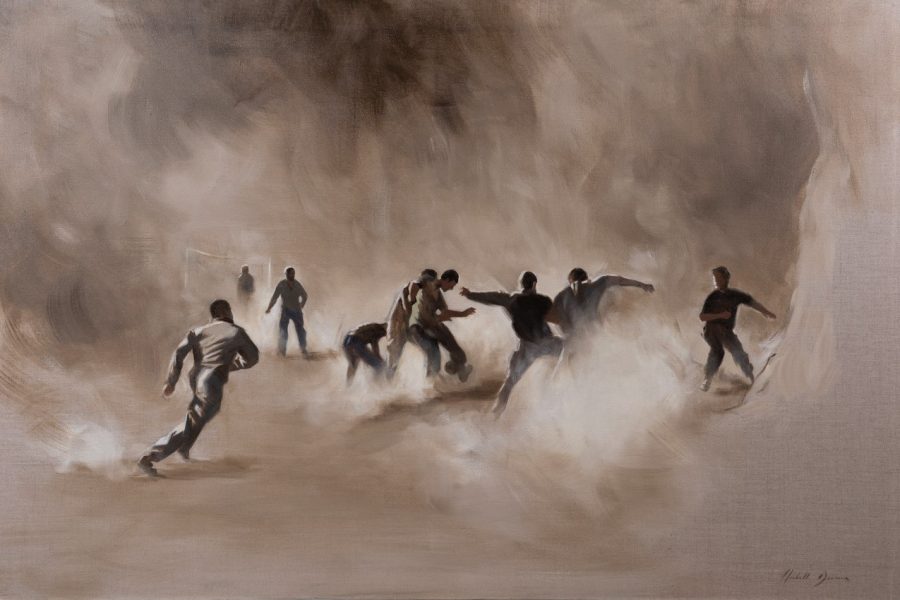Major John Errington, from Shrewsbury, celebrates his 104th birthday today (12-08-22). John is a World War 2 veteran who valiantly fought defending the beaches of Dunkirk at the battle of Le Paradis in Northern France in May 1940. He is the oldest living Royal Scot and must be one of the last, if not the last, surviving regular officer commissioned before the start of World War 2.
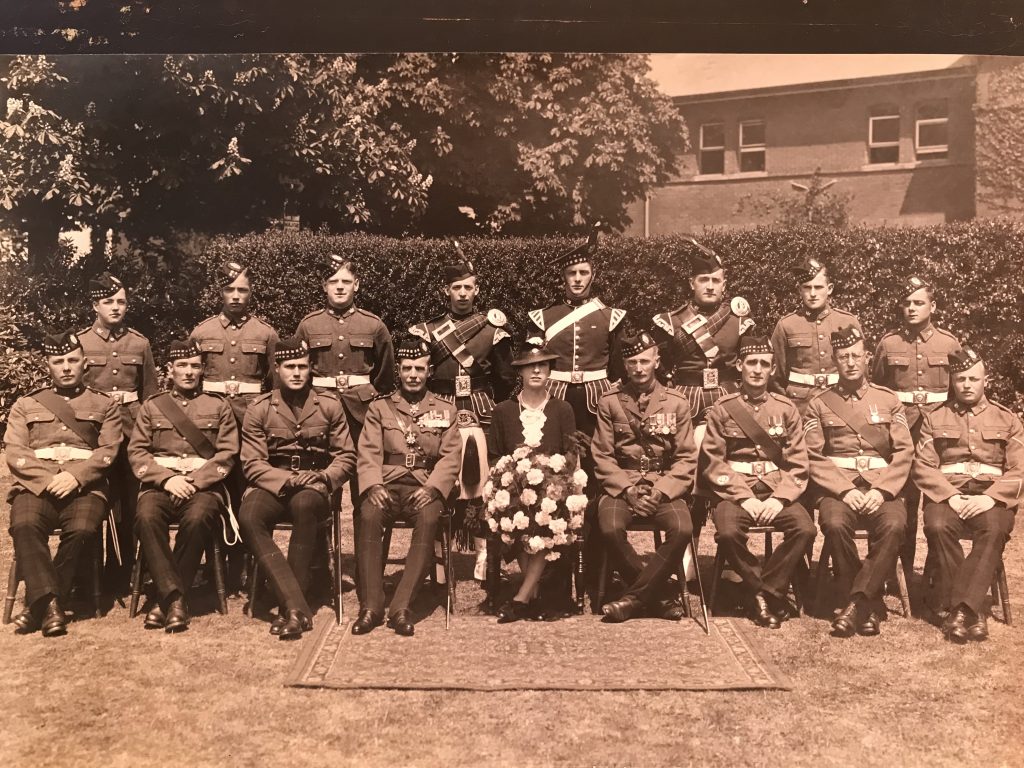
The 1st Battalion The Royal Scots’ orders, to ‘Stand And Fight To The Last Man’, played a pivotal role in enabling the withdrawal of 337,000 Allied Forces from the beaches of Dunkirk. However, this three-day rear-guard defence against overwhelming odds led to the Battalion’s destruction. John Errington was eventually captured and spent five years as a prisoner of war.
On the 25 May 1940, the 1st Battalion The Royal Scots, reduced in strength to just 400 men by more than two weeks in action, prepared for their last stand at Le Paradis, 30 miles from Dunkirk in Northeast France.
At the start of the operation on 10 May 1940 the 1st Battalion was some 770 strong. At the end of the operation on 27 May 141 had been killed and over 350 wounded. 292 Royal Scots were captured and became prisoners of war; most of whom were wounded. A mere handful had escaped back to the UK. There were many acts of outstanding bravery, in all two Distinguished Service Orders, three Distinguished Conduct Medals, two Military Crosses, one Military Medal and 16 Mentioned in Dispatches were awarded.
John Errington served with the Battalion’s French liaison officer, Captain Michel Martell, a family member of the Martell Cognac Company. Martell’s nickname was “Stiffy”, so called because when offered a drink Captain Martell would ask for a “stiff one”! John recently received a special bottle of cognac from Martell’s grandson, Thierry Firino-Martell, who sent the gift to celebrate his enduring comradeship and bravery. (He is pictured receiving the bottle in May this year. and holding his medals – attached).
A living history film of John’s WW2 memories can be seen here: https://youtu.be/dtB2z2brBsg. In the video, John is joined by three other veterans, who, sadly, have subsequently died.
Brigadier George Lowder MBE, Chair of The Royal Scots Regimental Trust, said: “John Errington has been a very loyal member of our regiment and has shown exemplary service, especially during the second world war. On behalf of the regiment, we send our warmest congratulations on this special birthday, his 104th.”
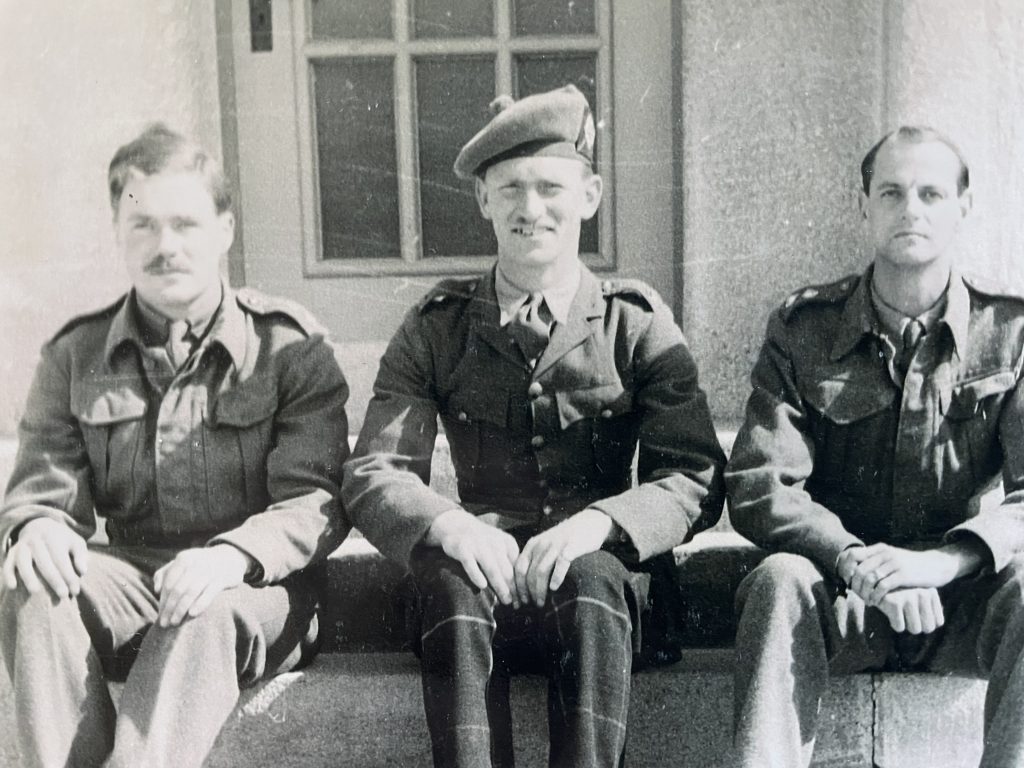
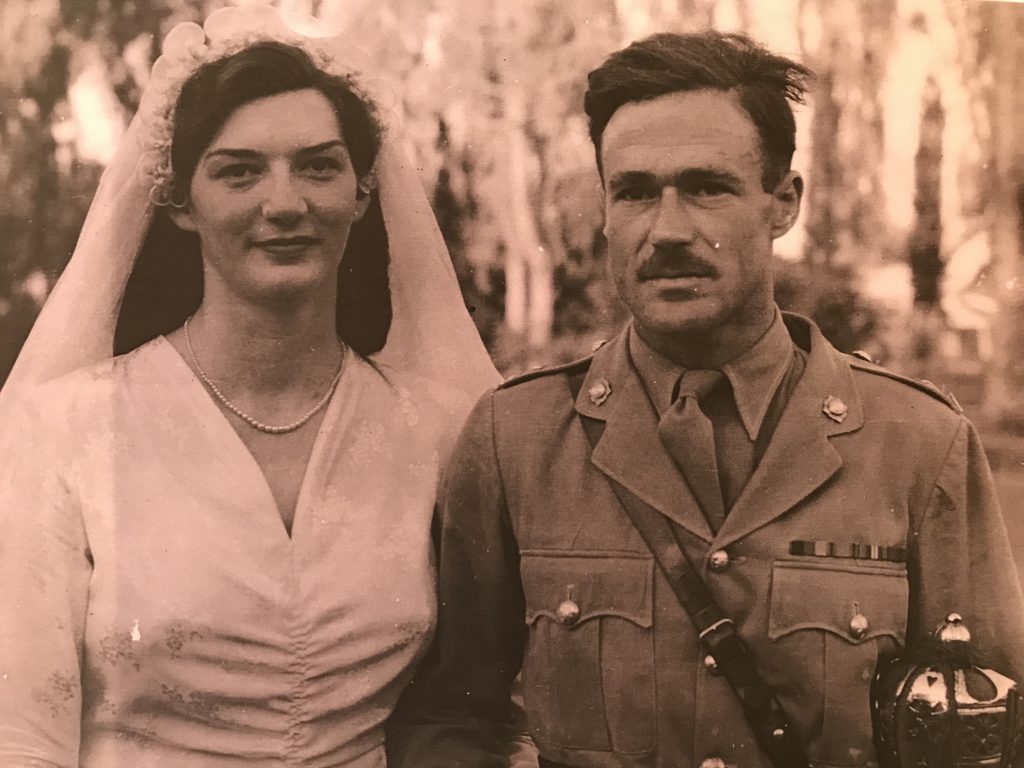
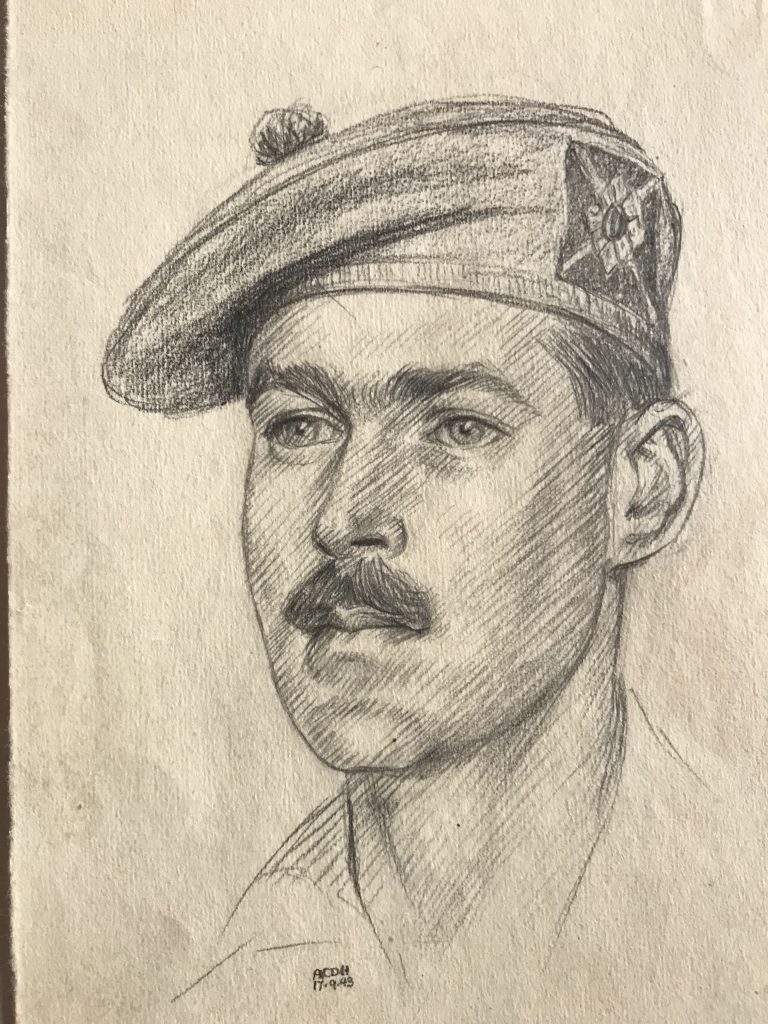
Notes to Editors:
History of 1st Battalion The Royal Scots – September 1939 – 27 May 1940
1st Battalion The Royal Scots landed in France in September 1939 as part of the 4th Brigade of the 2nd Division of the British Expeditionary Force (BEF).
For the next eight months, The Royal Scots prepared and manned defences across northern France, even taking a turn in the massive concrete fortresses of the French Maginot Line.
When the German attack, in the west, finally began on the 10 May 1940, the Battalion crossed into Belgium and had their first contact with the enemy west of Brussels at Wavre.
As the Allied forces were pushed back by the German Blitzkrieg, The Royal Scots withdrew across the French border. Meanwhile, the Germans raced for the Channel coast, splitting the BEF off from their Allies. Plans for the BEF’s evacuation were prepared.
As the Germans turned north, it became vital that their advance was delayed long enough for the main part of the British Army to reach the beaches at Dunkirk.
The BEF were up against a far better equipped and a much stronger enemy, which made their phased defence and withdrawal actions even more difficult. The 1st Battalion The Royal Scots had defended four major river lines in their withdrawal from Belgium. They were constantly under attack by the Germans; for example, on the 21 and 22 May, defending the line of the River Escaut, they suffered 150 casualties in two days.
Their withdrawal culminated in a last stand at Le Paradis between the 25 and 27 May 1940. They were exhausted, low on ammunition and very lightly equipped to defend against an armoured and air attack. On the 25 May, the 2nd Battalion The Royal Norfolk Regiment received the full weight of the enemy attack on the La Bassée Canal, receiving heavy casualties. Then for two days The Royal Scots fought a very determined and valiant rear-guard defence against overwhelming odds. Eventually, through constant attrition, they were reduced to isolated small units.
Only the very brave, but fatal action of Pipe Major Allen, avoided this Battalion headquarters being overrun. He held up the German advance single handed with a Bren gun until he was killed. During these three days, there were numerous other acts of considerable bravery.
Their ferocious defence at Le Paradis inflicted heavy losses on the enemy, and seriously damaged the confidence of the SS “Totenkopf” Division they fought. Most importantly, it delayed the German’s advance, allowing thousands of British troops to reach the beaches of Dunkirk. The Royal Scots’ contribution to the battle of Dunkirk was vital, yet most of the survivors of Le Paradis would spend the next five years as prisoners of war.
Though the Royal Scots had been in continuous action for seventeen days, had travelled over 200 miles and had suffered heavy casualties, their fighting spirit was undaunted. Those who escaped through Dunkirk would live to fight another day, through the courage and sacrifice of The Royal Scots.
Afterwards, at a hospital, a German officer, on handing over some wounded Royal Scots to a Chaplain stated, “They fought like lions”. Sometime after the war, the captured French liaison officer, Captain Michel Martell, attached to The Royal Scots wrote “..during the five years of waiting for our freedom, after living with The Royal Scots, I could never despair of seeing Germany beaten.”
Brigadier George Lowder, Chair of The Royal Scots Regimental Trustees, said: “This is a soldier’s story. The Royal Scots, professional soldiers doing what they had signed up to do. They fought ferociously to the last man at Le Paradis. Their fighting spirit was undaunted, although they had been in continuous action for 17 days delaying the German advance over 200 miles and had suffered heavy casualties. Their contribution to Dunkirk was vital. We should never forget that the vast majority of those who survived the last stand at Le Paradis spent the next five years as prisoners of war.”
Explanatory Notes:
Website addresses:
- Home Page: http://www.theroyalscots.co.uk/
- BEF Deployment 1939: http://www.theroyalscots.co.uk/2nd-world-war-ww2/
- Le Paradis defence: http://www.theroyalscots.co.uk/le-paradis/
- Regiment’s history: http://www.theroyalscots.co.uk/history/
In 2006, The Royal Regiment of Scotland was formed from its predecessor Scottish Infantry Regiments; after 373 years of unbroken service The Royal Scots left the British Army’s order of battle.
Social Media links:
https://www.facebook.com/TheRoyalScots
https://www.facebook.com/TheRoyalScots
https://www.youtube.com/channel/UC6Wj9U1GMbA78Qg-bCfhhJg/videos?view_as=subscriber


